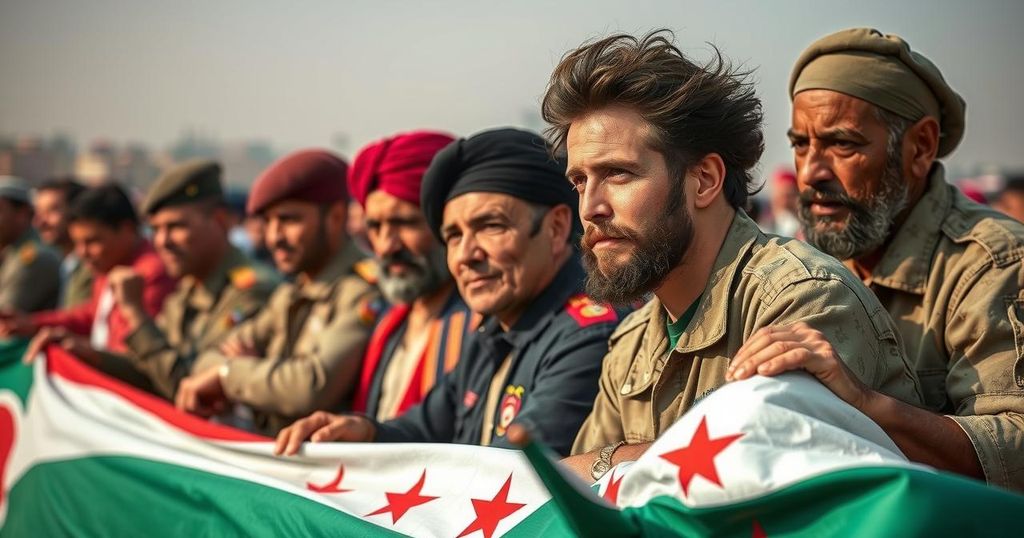Global news
’ EL ALZAYAT, AMERICA, ASIA, ASSAD, BASHA, BASHAR AL -, DEMOCRATIC FORCES, EUROPE/ASIA, FIGHTER JETS, FOREIGN POLICY, HAYAT TAHRIR AL - SHAM, JIHADIST GROUPS, KURDISTAN WORKERS ’ PARTY, LARA JAKES, MIDDLE EAST, MILITARY, NICHOLAS HERAS, NORTH AMERICA, P. K. K, REC, RECEP TAYYIP ERDOGAN, STATE, SYRIA, SYRIAN CONFLICT, SYRIAN NATIONAL ARMY, TURKEY, UNITED STATES, WA, WAR
Leila Ramsay
0 Comments
The Threats Facing America’s Kurdish Allies in Post-Civil War Syria
This article examines the precarious position of Kurdish forces in northern Syria, particularly the Syrian Democratic Forces, after the Syrian civil war. With Turkey viewing the Kurds as adversaries and bolstering rival rebel factions, the Kurdish forces face mounting threats despite their previous alliance with the United States. The implications of U.S. diplomacy and Turkey’s military ambitions are critical to the future of Kurdish autonomy and stability in the region.
The Kurdish forces, notably the Syrian Democratic Forces (SDF), have emerged as vital allies of the United States in combating the Islamic State within Syria. However, following the Syrian civil war and the fall of President Bashar al-Assad, the Kurds face intensified threats primarily from Turkey, which perceives the Kurdish militia as a terrorist group linked to the Kurdistan Workers’ Party (PKK). President Recep Tayyip Erdogan is capitalizing on the altered political landscape in Syria, reinforcing Turkish dominance and support for rebel factions that oppose the Kurds. This development jeopardizes the stability and position of the Kurdish groups in northern Syria, particularly as Turkish-backed forces have begun military actions against the SDF. American diplomacy remains crucial, pledging to maintain pressure on ISIS and supports Kurdish forces while navigating Turkey’s interests, creating a precarious balance that could have significant implications for the future of the Kurdish people and Syrian stability overall.
The article addresses the complex dynamics involving the Kurdish minority in Syria, specifically the Syrian Democratic Forces, and their alliance with the United States against the Islamic State. The aftermath of Syria’s civil war transitions to a new phase where various factions vie for control, with Turkey asserting influence against the Kurdish forces it views as a fundamental threat. As diplomatic negotiations unfold, the interplay of Kurdish ambitions for autonomy, U.S. support, and Turkey’s military agenda shapes the precarious situation in the region.
In conclusion, the Kurdish groups in northern Syria, once key allies to the United States in combating ISIS, now confront significant Threats from Turkish-backed forces. The prevailing geopolitical landscape suggests that their position remains increasingly vulnerable, underscored by the ongoing military pressures from Turkey and the shifting allegiances within Syria. The role of American diplomacy will be integral to ensuring the security of Kurdish forces while navigating the complexities of Turkish interests in the region.
Original Source: www.nytimes.com




Post Comment